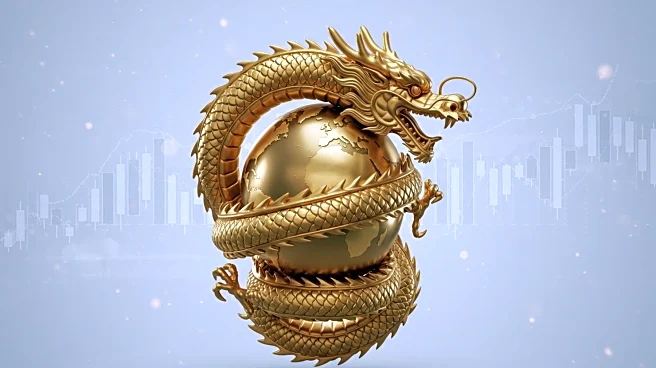What is the story about?
What's Happening?
China's economy showed signs of slowing in July, with official statistics indicating a decline in industrial production, retail sales, and investment. The slowdown is attributed to the ongoing trade war with the United States and a prolonged crash in real estate values. Despite these challenges, China's exports continue to rise, unaffected by tariffs imposed by President Trump. The Chinese government has taken steps to slow factory output as countries impose tariffs on its exports. Unemployment has increased, particularly among recent college graduates seeking employment. Fu Linghui, chief economist of China's National Bureau of Statistics, cited tariffs and other factors as contributing to the economic slowdown.
Why It's Important?
The economic slowdown in China has significant implications for global trade and economic stability. As one of the world's largest economies, China's performance affects international markets and supply chains. The ongoing trade tensions with the United States may exacerbate economic challenges, impacting industries reliant on Chinese exports. The slowdown may prompt Chinese policymakers to implement stimulus measures to boost domestic demand and stabilize the economy. The situation highlights the interconnectedness of global economies and the potential ripple effects of trade disputes.
What's Next?
China may consider additional stimulus measures to counteract the economic slowdown and support domestic industries. The government may also seek to negotiate trade agreements to alleviate tensions with the United States and other countries. Economists and policymakers will closely monitor China's economic indicators to assess the impact of tariffs and other external pressures. The situation may lead to discussions on the need for international cooperation to address trade disputes and promote economic stability.
Beyond the Headlines
The economic slowdown raises questions about the sustainability of China's growth model, which has relied heavily on exports and real estate development. It may prompt a reevaluation of economic strategies to focus on innovation and domestic consumption. The situation also highlights the broader issue of how geopolitical tensions can influence economic performance and necessitate adaptive policy responses.















